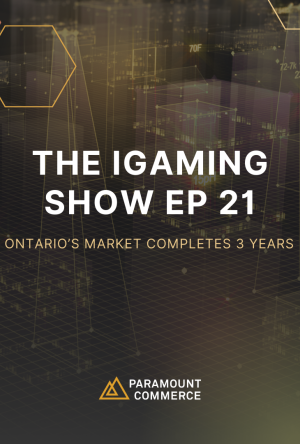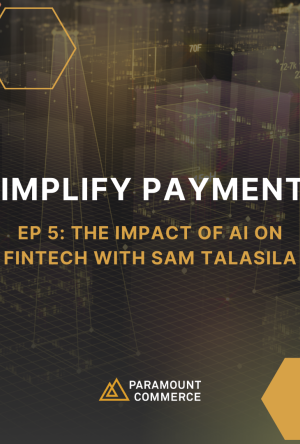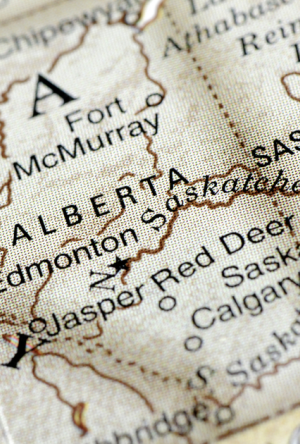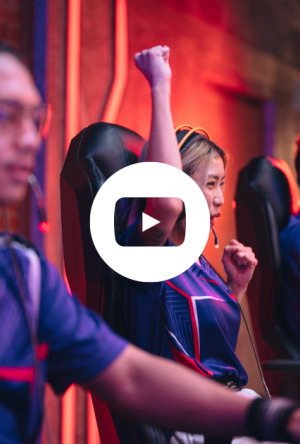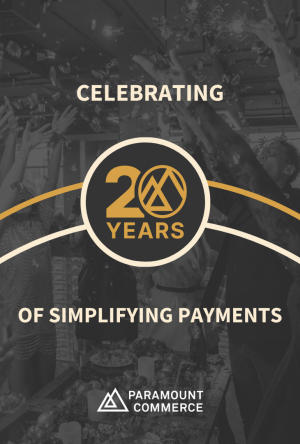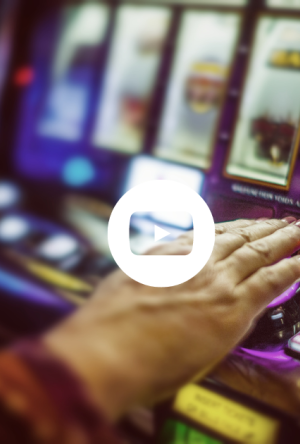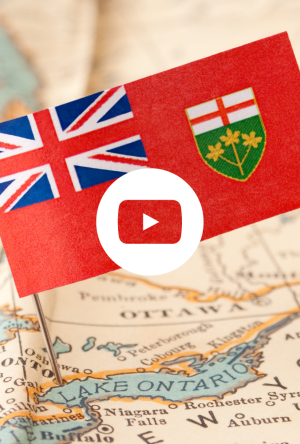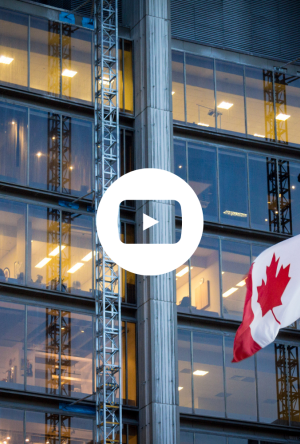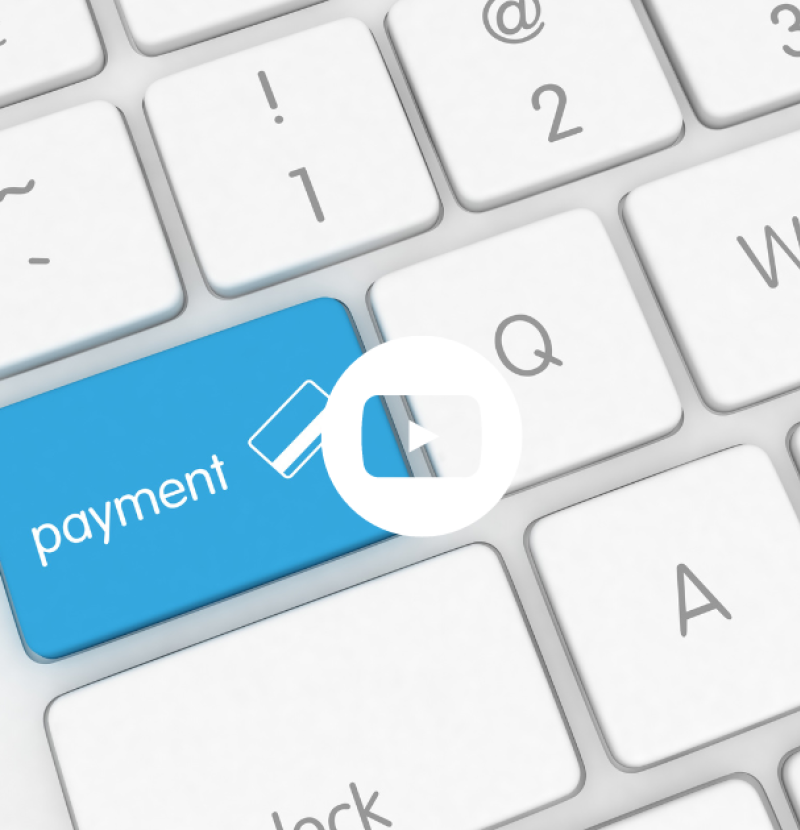
The iGaming Show - EP7 (What Do Operators Look For In A Payment Partner With Trent Striplin)
In new iGaming markets, such as Ontario’s, operators have the important task of integrating the most innovative and well-known payment solutions for their consumers. When done correctly, these solutions can benefit both consumers and the operator. But what specific features or technology do operators look out for? In this episode, we will discuss the importance of finding the right payment partner in a newly regulated iGaming market from an operator’s perspective.
The iGaming Show, presented by Paramount Commerce, is a podcast that will analyze gaming industry trends with experts from various gaming organizations.
Please like, comment, and share this video. Also, stay up to date with our content by subscribing to our YouTube channel.
Read the full episode transcript:
Varad Mehta: Hello everyone. And welcome to the seventh episode of The iGaming Show, presented by Paramount Commerce. I am your host Varad Mehta. And in this podcast, we analyze gaming industry trends with experts from various gaming organizations. In today’s episode, we will discuss the importance of finding the correct payment partner in a newly regulated iGaming market with Trent Striplin, the VP of Payments and Fraud at Caesars Digital. So without further ado, let’s get the show rolling. So, Trent, we begin this podcast by asking a few fun questions. Sure. So I had a few lined up for you. So the first one is, what is one thing you love about winter, and what is one thing you loathe about winter?
Trent Striplin: I think one thing that I’ve always loved about winter is growing up, both in my parents’ house and both my grandparents house, there’s always been a wood fireplace. And not that it was the single source of heat, but it was always a gathering point. Everybody would kind of huddle around the fire, and it was where we played games. And during the holidays, like Thanksgiving and Christmas, there was always a fire going. So I think for me, that’s probably my favorite thing about winter. My least favorite thing has got to be just how cold it is. You know, getting in the car on a cold morning is probably my least favorite thing until it heats up.
VM: Yeah. Shoveling the snow and all that stuff.
TS: But fortunately, we only get snow about once a year, so at least in Oregon, we don’t have to do that.
VM: Oh, nice. Okay. Lucky people. Yeah. My second question is something related to Oregon. So if I’m not mistaken, you are from Portland.
TS: Yes, sir.
VM: So as a Portlander, what is one thing you would absolutely recommend to a non-Portlander if they visited the city? Like, I’m from Toronto, so what would you recommend I check out if I visited Portland?
TS: Yeah, there’s probably a couple that are on the must-see list. Powell’s Books is one of them. It’s one of the largest independent book stores in the US. If not the world. And that’s a really cool place. I think that’s something that’s very kind of unique to Portland. Portland is known as the City of Roses. We have a massive international test garden that has hundreds of different types of roses. So if you’re here during a period of time when the roses are in bloom, that’s always my go-to recommendation. And then the Columbia River separates Oregon and Washington, and it’s carved out what’s known as the Columbia Gorge. And Multnomah Falls is this gorgeous waterfall that has a hiking trail that you can take to the top. That’s usually a really good one. That’s usually really fun during the summer.
VM: That sounds fun. I might check out Portland someday, and I have the official list, so I’ll definitely check it out. And my last sort of fun question is, and I don’t want to embarrass you by asking this. I have heard that you do good voices and impressions. Now, I don’t know if this is true. Someone ratted you out.
TS: Who told you this?
VM: I’m not going to name names, but if you could do like one of your favorite impressions or voices, what would it be?
TS: I have no idea. I didn’t know I was known for impressions. I guess give me one and I’ll try my best. I don’t think I’m that good at it, but yeah, give me one and I’ll try my best.
VM: How about someone from The Simpsons? Maybe Homer or someone?
TS: D’oh! That’s funny. I don’t know. I didn’t know I was known for that. I have to brush up now.
VM: I’ve heard that. So I was like, okay, I’ll ask Trent to do that. I don’t want to embarrass him or put him on the spot, but I like that.
TS: That’s a good one. That’s a good one.
VM: Yeah. So now, phasing into what we’re here to speak about today, I wanted to learn a little bit about what it is from an operator’s point of view when it comes to making connections with the payments industry. So maybe you can just begin with you telling me how you got involved with the iGaming industry.
TS: Yeah, it’s kind of a random story. I was working for a startup business consultant that specialized in independent dental practices and independent dentistry, so helping dentists grow like the business side of the practice so that they could focus on the clinical side. And there was some turnover and some changes. And I started to look for a job. Posted on LinkedIn that I was looking for a job. And out of the blue I had a recruiter reach out to me from a company called TVG. TVG is the largest online parimutuel wagering company in the US. And they also have multiple television channels that are dedicated to horse racing that show the races that have commentary. And at that point I was ready to do just about anything. And so she asked, do you know anything about horse racing? And I had a roommate of mine from college that lived in Louisville, Kentucky, which is where the Kentucky Derby is. So two years prior I had gone to the Kentucky Derby and got to experience that, which was incredible. I’d say that’s a bucket list item for anybody visiting Kentucky. If you’re not drinking bourbon is make it to the Kentucky Derby just because it’s such a cool experience with all everybody’s dressed up, you’ve got the hats. It’s really cool. So I told her, I said, I don’t know anything about horse racing but I have been to the Kentucky Derby. And she’s like, perfect. I said, I know finance. And it kind of went from there, had a couple interviews and started to manage a team that was focused on payment and fraud operations and strategy. It had a sister company that was Betfair Casino and they were owned by Paddy Power Betfair, now rebranded as Flutter. And Flutter was the business that purchased FanDuel in 2018. So I was in the industry pre-PASPA and post-PASPA and have seen just the absolute boom and growth in the industry. It’s been a wild ride, just trying to hold onto the rocket ship as new states come on board. But that’s how I got into it, was just randomly recruited and thought, you know, I need to make a change. Wasn’t really happy in my other job and kind of stumbled upon it.
VM: Yeah. So even being in the iGaming industry you always had a link to like, the finance world or maybe the payments world. So was that always what you were looking to get into or what was the goal there? Because I think currently you have a big role to play with payments.
TS: Yeah, it wasn’t at all. I mean, when I was a kid, I thought I was going to be in the NBA, but that quickly petered out in 8th grade or actually freshman year when I didn’t make the high school basketball team, that dream was gone. So then I thought, I always liked building things, and I still do. I always like DIY projects, home improvements, working on cars, things of that nature. I played with Legos a ton as a kid growing up. And my grandfather was a civil engineer. I thought, okay, well, I’ll follow in his footsteps. Engineering is a good path, good paying jobs, they’re in high demand. And so I went to Oregon State for civil engineering. And after two years and getting into the professional school of engineering, it was something that I wasn’t as interested in as I thought I was. So I had to quickly pivot and figure out, how do I take two years of credits and classes and apply them towards another degree that doesn’t force me to stay here for another four years? You know, that I have to start fresh. And my father has always been in the finance industry and compliance, and so I thought, okay, well, that seems like a good fit. A lot of the classes transferred over, I was only going to have to stay for an extra year with some summer classes. And so that’s when I made the jump to finance. And really, I’ve loved it. I’m a numbers guy. I love creating budgets, I love creating spreadsheets. What a lot of people probably don’t think is very sexy, I think is really cool. I think in my role, I get to do that side of the business where it’s like the number crunching, but then a big portion of payments, the strategy side is relationship development and establishing relationships with payment vendors that are in the industry. And so I think I’ve really enjoyed kind of that mix of both like the traditional nitty gritty finance and then the relationship building side.
VM: But I think, Trent, we have to say that payments are sexy and finance is sexy now, especially in the iGaming industry, it plays such a huge role. Getting to know more about that and how it ties in with your role as well. So, as you’re the VP of Payments and Fraud at Caesars Digital, how do you approach finding or recommending payment solutions for the Caesars platform? Because do you need to study the market state by state or maybe region by region as it grows? What do you look for or what is the approach in finding a payment platform?
TS: Yeah, it’s a good question. I think in the United States and in the online gambling space, we’re kind of in a unique position, being a high risk category. So even today, five years in, four years in, four or five years in, you still see some of the large issuing banks that are declining transactions. And so that’s what has led us to offering a kind of a multitude of payment methods. So if you look at, if you’re on Amazon or you’re buying some clothes online, usually it’s just going to be PayPal, credit card, or some form of quick check out like a Shop Pay or Google Pay, or an Apple Pay, Amazon Pay. Whereas in the online gaming space, because most of those are tied to your bank account or credit card, they may or may not work for us. So we’ve had to get creative in terms of the vendors that we use and some of the alternative payment methods that give customers a whole host of options to choose from in various forms and factors. So when I look at the payments industry and selecting a vendor, I really think it’s three things. First and foremost, the most important is the customer experience. How easy is it for the customer to use? We know that payments is already a friction point in the industry. Let’s not introduce any additional friction to that flow. So how can we get the customer through seamlessly minimum amount of steps without bypassing regulatory and compliance features? But how do we give that customer kind of a seamless streamlined experience? The second would be the technical integration. So I think what we see in the industry, and probably outside the industry in the US as a whole, software developers and software engineers are very hard to come by. Everybody’s trying to hire them, although I guess with the Twitter layoffs, maybe there’s a surge of them on the market now. But dev time is always one of the most sought after resources in the business. So in order to be efficient and get things to the market for customers to use and make that process frictionless, we need to have good technical documentation and good technical integrations. And then the third, which they say price is only a question in the absence of value, is the cost. So in online gambling, it’s a very a high volume, low margin business. So we’re making four, five, six, seven cents on the dollar. And when it costs you $2 or $3 on $100 deposit, the margins are very slim. So we have to be able to control our costs so that we can work towards, work towards profitability, which I think we’re really starting to see this year, and I think even more so next year is going to be a major driver, major pillar for most of the large gaming companies is that push for profitability. So we’ve already seen, I think, FanDuel in Q2 had their first profitable quarter, which has only put the pressure on everybody else to get there. So I’d say those are the three main things that I’m looking at in terms of how to select a payment provider.
VM: Yeah. And apart from those components, do you think you take into account like, technology or maybe unique features that certain platforms provide, or maybe they’re trending right now, or they have been established in a certain region?
TS: Yeah, I think so. From a regional perspective, absolutely. So if you look at like the United States versus Canada, and the presence of INTERAC is huge. So when Ontario launched, like, that was a must-have. Now we are playing a little bit of catch-up there and are still working on our INTERAC integration. But that would be an example of where you would need a specific kind of method and somebody that can connect you to that method. As we look towards Latin America, Puerto Rico, some of the international space, you really need to identify what’s kind of local currency in terms of payments, what are they using, what are they using to transact, what is peer to peer? But I think it’s been interesting. One thing that I found very interesting in the space is five years ago, it was like you went to one payment method or one payment provider for one thing, and you had your ACH vendor here, you had your PayPal, you had your card. Now we’re getting to the point where it feels like everybody is now offering connectivity across the board to those payment providers, kind of from a payment aggregation standpoint. So I think that’s one thing to consider too, is on the back end of some of these payment providers, what is the host of methods that they have connectivity to and do those, you could have 500 of them, but if none of them are applicable, it might not be as beneficial to integrate than somebody that has 100 and half of them are applicable.
VM: Yeah, I think you spoke about something really interesting. Even market expansion or looking at new regions that are going live with their regulated iGaming markets. So from an operator’s perspective, when you are entering a new market, why is it important, especially in your role, to team up with the correct payment partner? Why is that really important?
TS: Yeah, so I think when you look at the lifetime value of a customer, there’s a couple of major friction points. The first is just acquiring the customer. So we’ve seen the major operators spend millions of dollars to acquire customers. Then you have to get them to KYC. Since we’re in a regulated environment, we have to make sure we know our customer. Then you have to get them to fund. So they have to jump through kind of a series of hoops. And we know that every little piece of friction causes drop off in that conversion funnel. So we don’t want to spend a ton of money to acquire a customer, get them KYCed, and then have them fail the deposit and say, oh, well, I’m going to go somewhere else where I know I can make a deposit with this method. So I think that’s crucial in that process to make sure you’re giving customers methods that they want to transact with on day one.
VM: Definitely. And speaking about the Canadian market, it went live in April this year, but before the Canadian expansion, what were some of the discussions at the leadership level related to payments and fraud prevention?
TS: Yes. Well, for me personally, it was, holy crap, I need to figure out Canada. I need to learn the local language. We don’t have INTERAC in the US. So for me it was a lot of like, learning how is INTERAC used, what types of INTERAC, INTERAC has the e-transfer. There’s the peer to peer. There’s a number of kind of methods, sub methods within INTERAC. So for me, it was a big learning curve just to understand the Canadian market. And fortunately, there’s a number of payment providers, Paramount being one that we have good connections with that helped us to better understand that local market.
VM: Yeah. And being in the market since April, have you noticed – what have you noticed, like learning about Canada or the requirements by Canadians or something related to fraud in that way?
TS: Yeah. So a couple of things that come to mind there. The first is just the level of requirements to know your customer are much higher in Canada than in the US. And I thought they were stringent in the US. So you have to have credit lines that customers have had for a certain length of time. There’s kind of a more robust KYC process that they’ve had to go through. So I’d say from a regulatory perspective, it’s probably a little bit tighter than the US.
VM: That sort of ties into what is about asks next. But how is it different launching into Ontario versus state wise in the US? Is there a difference between the launches or maybe the markets themselves?
TS: I think there’s severalties and nuances. I know there’s heavier restrictions on marketing in Canada that can’t be tied necessarily to a financial offer. So that makes kind of the go-to market strategy a little bit different on how are we going to attract and acquire customers? They’ve taken the perspective that it’s fine to market the brand and the product, but not to incentivize with money customers to come over. From a tech perspective, it has been pretty much the same as a new state launch. It’s really like another territory, another province. So from like a technical perspective, outside of some of the nuances around KYC requirements and marketing restrictions, it’s been fairly similar. And payment methods, obviously it’s been fairly similar from a tech perspective, which makes it a little easier than trying to have to reinvent the wheel or build out a completely new product.
VM: Yeah, it’s definitely marketing and the language, what sports we like, what teams we like. Big CFL fans over here. So yeah, going back into our topic, tying it back to payments and fraud, what are some innovations in payments or risk management/fraud you’d love to see available for consumers, whether it’s in the US or Canada or any new regions that you’re looking into?
TS: Yeah, I think it’s something that ties back into the shift from trying to get as many customers as you can to try and get good customers. So we’re seeing the major operators tighten their wallets in terms of marketing spend. Before it was just like open the floodgates, whoever gets in, let them in and then kind of figure it out later. Now you’re seeing more proactivity or proactiveness in the operators to kind of weed out or filter out maybe less savvy customers, maybe customers that you actually don’t want or just general fraud. So I think there, and there’s been a shift there from let’s build some kind of in house tools to how do we leverage or partner an integrated fraud solution like an Accertify or a Sift or account to better automate to scale with the massive growth of the business. So I think that’s been a big shift that I’ve seen both during my time at FanDuel as well as at Caesars, is how can we integrate and automate that? And really, at the end of the day, with the better fraud tooling and tracking what it lets you do is give the good customers a better experience because you can ease the friction on them. For example, with withdrawals. If you know that Trent is a repeat customer, he always deposits with his credit card, he always withdraws to that same card and you’re able to automate that review. You can basically send that withdrawal out as soon as the customer requests it. Because you’ve done all that betting, you know that’s a good customer and they’re exhibiting signs of good behavior. So I think that’s one thing that maybe the commercial teams are kind of changing their mind on. Before it was like, oh, this is going to be too impactful for too many good customers, but really it’s actually helping the good customers have a better experience.
VM: And lastly, I wanted to ask that what is next for you and the Caesars team in Ontario or maybe in the States? I know you mentioned that there was a launch recently somewhere in the States as well. So what is next for you and the Caesars team?
TS: Yeah, well, right now it’s state launches, so we’ve got Ohio soft launched a week or two ago and it’s going to go full launch on January 1. We’ve got Maryland, which is in soft launch right now and is opening up next week. We’ve got Massachusetts behind that and there’s a handful of other states that might follow suit. So that’s probably the big one. Super Bowl is coming up in a little over two months. Yeah, so we got to get prepared for that. And then really for me, it’s how can we take a step back and assess the customer’s journey and the customer experience and make that as robust as possible?
VM: Definitely. Trent, I want to thank you so much for providing me your time today. It is so good to speak to someone like you and I’m so sorry to put you on the spot for impression. Again, thank you so much, Trent. I know you must be crazy busy with so many launches and work must be crazy right now. So thank you so much. I hope whoever listens to this podcast understands what it means from an operator’s perspective when they select a payment partner in new regions or look at state by state or countries. So, again, thank you so much and I hope you liked the fun questions as well.
TS: I did. It makes it so much more relaxing and like, more of a conversation than like, an interview. So yeah, I thought those were great. I appreciate you having me on and your flexibility.
VM: Perfect. Thank you so much, Trent. Have a good day.
TS: Thanks Varad. Will talk to you later.
VM: Thank you.
VM: Operators have the important task of understanding what payment solutions consumers prefer in the newly regulated iGaming market, which is why having the correct payments partner can support their customer acquisition and retention strategies. I want to thank Trent Striplin, the VP of Payments and Fraud at Caesars Digital for joining us today and providing his expertise. If you have any questions for us or Trent, then please do comment them down below. If you enjoyed today’s podcast, then please consider sharing, liking and subscribing to our YouTube channel. And as always, thank you so much for tuning into The iGaming Show presented by Paramount Commerce. I’m your host Varad Mehta. And until next time, keep gaming.


